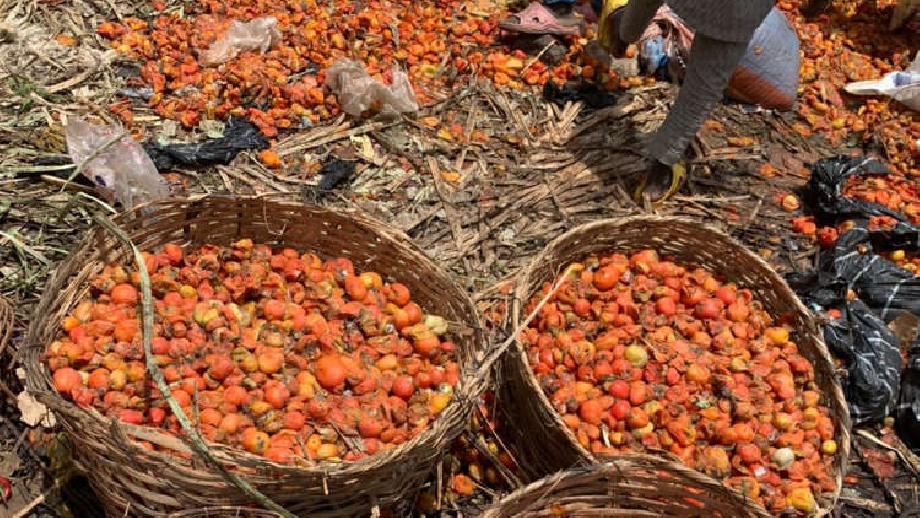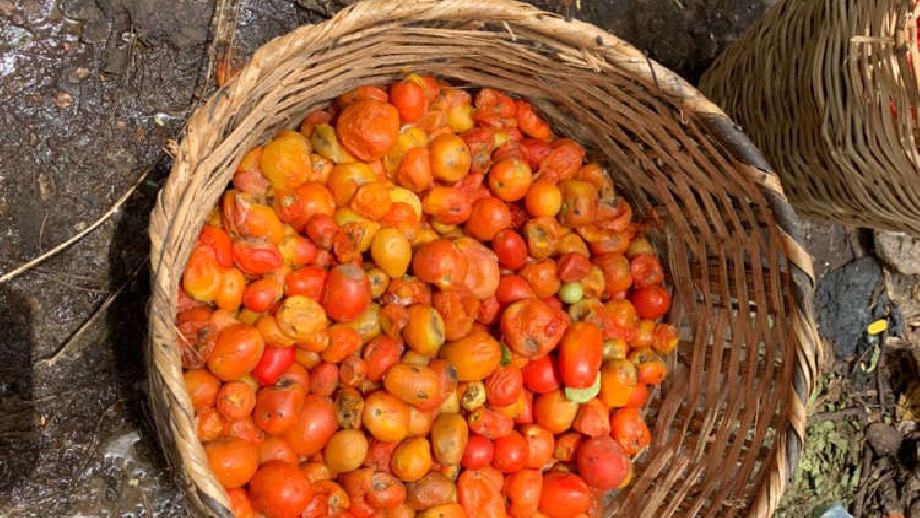
Tomato scarcity is looming in Kano, the commercial nerve center of Northern Nigeria following the outbreak of Tuta Absoluta, the deadly disease that is consuming tomato farms.
Over 300 hectares of tomato farmland valued at N1.3 billion have been destroyed in the last week as the tomato Ebola continues to ravage farms in the pyramid city.
As a well-to-do tomato farmer in Bunkure town, Muhammad Deeni Nasiru was expecting a bumper harvest of about N2 million naira worth of tomatoes this year.
He got nothing as his farmland was hit by the ravaging tomato Ebola. He told Nigeria Info that he did not make a kobo after investing millions in his tomato farm.
“I planted tomatoes in my four hectares of land, but I did not get anything. The funny thing is I spent money on insecticide as well but it didn't work. This breaks my heart because I lost over N2 million,” he said.
In what appears a double jeopardy, the chairman of the Irrigation Farmers in Bunkure, Mamuda Dan Bello, lost his two hectares of tomatoes to the insects, as well as his one-hectare maize farm.
“On my farm, I plant tomatoes in my two hectares of land, and in the remaining one hectare I plant maize. But the insects destroyed everything. For the tomatoes alone I lose about N1.3 million. If this thing continues like this, getting tomatoes will be very difficult in this country.”
The situation is similar in Daurawar Sallau in Garin Mallam LGA, about 23 kilometers from Bunkure.
A tomato farmer, Auwalu Hussaini, lost all his tomatoes a few days to harvest despite the application of insecticide.
“All the tomatoes on my four hectares of land are gone, and I have a family to feed. This is worrying. We are calling on government at all levels to investigate the cause of these insects to save us from this disaster,” he said.
Price Increase
Every dry season, tomato farmers in Garin Mallam produce about 20 truckloads of the crop, but the reverse is the case this season as they could only fill five trucks.
“A few years ago, we knew nothing about Tuta Absoluta, but now it is terrorizing our farmlands. Before the Tuta problem, we pushed out 20 trucks of tomatoes during harvest. But this time we only sent out five trucks,” a farmer, Sule Zubairu explained.
This has, expectedly, caused the price of tomatoes to skyrocket.
A plate of tomatoes that used to sell for N500 at the famous Yankaba Market is now N1,500, while the price of a basket is between N18,000 to N25,000, up from a pre-Tuta Absoluta range of N4,000 to N6,000.

A tomato buyer at Yankaba Market, Aisha Yahaya, expresses dismay at the increasing price despite the tomatoes rotting.
“Go round and see, all the tomatoes in the market have spoiled, but the price is getting higher. You can't even make a stew with your N1,000,” she lamented.
Nigeria is the second largest tomato-producing country in Africa after Egypt and the 13th largest producer globally with 2.3 million metric tonnes.
The national demand is estimated at 3 million metric tonnes.
The 700,000 metric tonne deficit is worsened by a 50 percent post-harvest loss of all locally produced tomatoes, caused by the lack of storage facilities and poor marketing channels.
The chairman of the perishable goods section at Yankaba Market, Umar Ibrahim, expresses fears of more price hikes.
“The Tuta Absoluta has caused a shortage of tomatoes in the market,” he said. “The tomatoes we are getting now are from the few farmers that escaped the insects. So, there will be scarcity and once there is scarcity the price will increase.”
Insecticide-Resistant Pests
On his part, an agriculture expert in the Crop Protection Department of the Bayero University Kano, Dr. Nafi'u Bala Sanda, is worried that the insects are resisting the pesticides the farmers use.
Dr. Sanda says farmers must adopt modern farming techniques which include biopesticide and Tuta Trap Tray to halt the spread of the disease.
“It is worrying that the farmers have been using different kinds of pesticides which are not working because the insects have developed resistivity. So, the combination of chemicals and traps is the only way to address this,” he said.
The Director of Agricultural Extension in the Kano State Agricultural and Rural Development Authority (KNARDA), Engr. Gambo Isa Garko points out the state government has assisted farmers with chemicals to address the spread of the insect.
He, however, urges the farmers to sanitize their farms.
“Farmers must sanitize their farmlands and use resistance varieties of tomatoes to address this challenge.”


